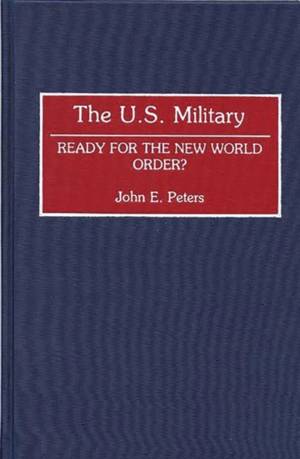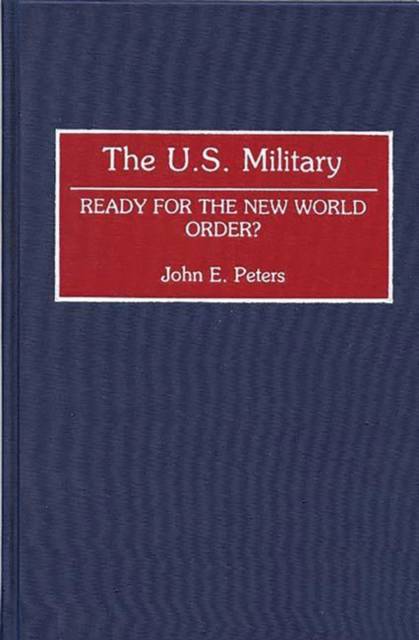
- Retrait gratuit dans votre magasin Club
- 7.000.000 titres dans notre catalogue
- Payer en toute sécurité
- Toujours un magasin près de chez vous
- Retrait gratuit dans votre magasin Club
- 7.000.0000 titres dans notre catalogue
- Payer en toute sécurité
- Toujours un magasin près de chez vous
Description
Will current strategic planning give the United States the sort of military capabilities that are needed to counter threats likely to occur in the future? Using first-hand experience at the Pentagon and an army background, Lieutenant Colonel Peters outlines serious problems, offers fresh insights into the defense planning process, and makes suggestions for developing an optimal force structure for the year 2000. This analysis utilizes case studies of the Gulf War, departing from recent studies about military reform. Policymakers, experts in political and military strategy, and political scientists interested in the inner workings of government agencies will find this study a provocative one.
Peters assesses the global security environment in this post-Cold War era and defines the risks and consequences likely to confront us. Employing the lens of organizational theory, he points to disjunctures between military and political policies and dysfunctional practices in the Defense Department. He describes the basic components in a force structure that would make the nation more secure militarily by the turn of the century.Spécifications
Parties prenantes
- Auteur(s) :
- Editeur:
Contenu
- Nombre de pages :
- 192
- Langue:
- Anglais
- Collection :
- Tome:
- n° 133
Caractéristiques
- EAN:
- 9780313285912
- Date de parution :
- 28-02-93
- Format:
- Livre relié
- Format numérique:
- Genaaid
- Dimensions :
- 162 mm x 238 mm
- Poids :
- 453 g

Les avis
Nous publions uniquement les avis qui respectent les conditions requises. Consultez nos conditions pour les avis.






